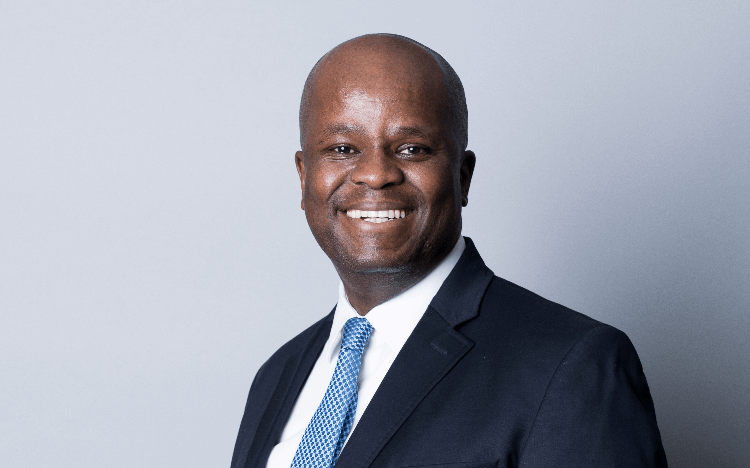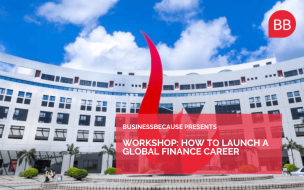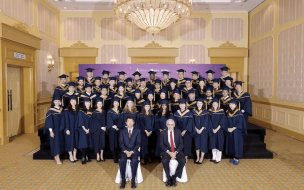For Mohale Rakgate, HKUST-NYU Stern Master of Science in Global Finance (MSGF) alum, that’s exactly what happened. Just six months after graduating from his master's degree, he landed a promotion to become chief investment officer of the Development Bank of Southern Africa (DBSA).
He now manages the DBSA Infrastructure Fund—a socioeconomic initiative kickstarted by the President of South Africa.
Gaining a global perspective on a Master’s in Finance
Connecting with people from around the world was a central part of Mohale’s former position as group executive at the DBSA.
When he gained the opportunity to study at two world-renowned universities on opposite sides of the world, he was hugely motivated to join the HKUST-NYU Stern MSc in Global Finance.
The one-year Master in Global Finance consists of four modules taught in Hong Kong, two in New York, and one in Shanghai. Students work together on their integrative project in between modules and after scheduled class time throughout the program.
“Being exposed to these different economies helped me learn so much as I was focusing on real-life cases both in Asian financial markets and the New York Stock Exchange,” says Mohale.
The MSGF is targeted at experienced professionals who each bring around 11 years of work experience. The average age of classmates is 35. As a dual institution program, MSGF students also gain access to both the NYU Stern and HKUST alumni networks, which consists of over 140,000 people worldwide
During the integrative group project, a key component of the course, Mohale worked closely alongside students from a diverse range of countries and professional backgrounds.
“Within my project team, there was someone from Columbia, Iceland, Canada, Hong Kong, and myself from Africa, which made for an interesting composition. Being from diverse job roles, we were all able to contribute and learn from one another,” says Mohale.
Learning high-level finance skills
The chance to upskill was a core reason behind Mohale’s decision to join the Master in Global Finance program. One of the ways he did this was by learning key expertise he could directly apply into his work.
“The MSGF courses focused on practical theories and techniques that I had come across before but not as extensively as it was in the program. These better foundations of knowledge led to better application in my work,” he says.
The Master in Global Finance curriculum includes courses such as Risk Management in Financial Institutions and Behavioral Finance. Mohale says these courses strengthened his decision-making skills and improved his understanding of the practical applications of risk management in finance.
In the integrative group project, Mohale and his team used blended finance to accelerate and scale up infrastructure implementation. Throughout this practical project, he learned about financial structuring and asset allocation, offering great insight into higher-level managerial positions in finance.
Mohale explains that working with experienced professionals from different career backgrounds and nationalities enhanced his communication skills and his ability to navigate different time zones—aspects that have proven beneficial for his global career after a Master in Finance.
Career progression to chief investment officer
After graduating from the Master in Global Finance, Mohale’s career took off when he was promoted to chief investment officer of the DBSA Infrastructure Fund. The fund focuses on growing the South African economy through scaling up and investing in infrastructure, sourcing finance to boost infrastructure programs.
The social impact initiative was started by the President of South Africa, Cyril Ramaphosa, when he came into power in 2018.
“I’m accountable to the president, the finance minister, and the minister of infrastructure, which is a lot more responsibility that I had previously,” he says.
South Africa has one of the lowest rates of investment in infrastructure globally and the highest rate of unemployment in the world at almost 35%. By growing the economy through infrastructure investment, the DBSA aims to reduce social inequalities within the country and boost employment rates.
Mohale believes that both the speed and degree of his career progression wouldn’t have been possible without everything he learned during his master’s in finance.
“The Master in Finance program underpinned all my experience with theory and skills that convinced my company I could take on a big leadership role in a new and important project,” he says.



.png)




